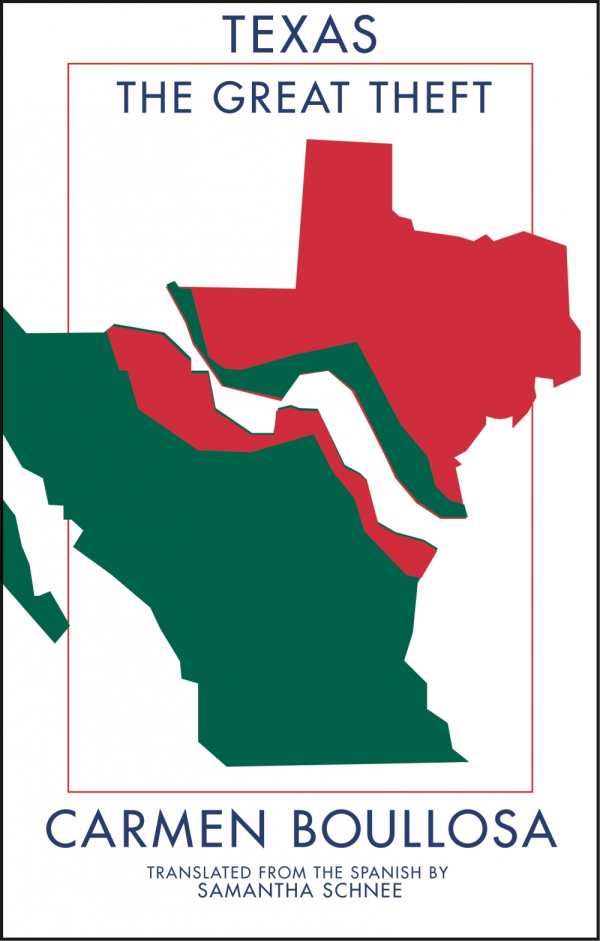Texas
The Great Theft
Filling an important niche in historical fiction, Texas speaks directly to prejudices and preconceived notions still alive along the border today.
The Mexico-United States border has long been a hotbed of controversy, at no time more evident than in the mid 1800s during the annexation of Texas. In a gun-slinging, fast-riding Southwestern tale of two cities, Carmen Boullosa explores the attitudes of the day in Texas: The Great Theft. Translated from the original Spanish by Samantha Schnee, the banks of the Rio Grande (or Río Bravo, from the south side looking north) are full of spirited, opinionated, larger-than-life men and women from both sides of the river.
Inspired by the events of the First Cortina War in 1859 and Juan Nepomuceno Cortina, known as “the Robin Hood of the frontier,” Texas focuses on the towns of Matasánchez, Mexico, and Bruneville, Texas. It quickly becomes clear that nothing is clear at all about a certain plot of land that Doña Estefania once owned in Mexico, land that curiously seems to have evolved into an emerging town in Texas, thanks to some shady trickery. Her son, Nepomuceno, leads a revolt to reclaim the swindled property, now known as Bruneville.
Throughout Texas, Boullosa masterfully juggles a caste of dozens, including cowboys, Indians, vaqueros, bandits, priests, Mexicans, Germans, Jews, Cubans, and “sonsofbitches.” While she makes it clear that “not all gringos are thieves, and not all Mexicans are kind-hearted,” Boullosa is obviously writing from a uniquely Mexican point of view.
The plot, divided somewhat unevenly into two parts, centers first on a public insult delivered to Nepomuceno by the sheriff—and the townspeople’s varied responses—before advancing several weeks to the eventual violent fallout and subsequent mayhem. Part one progresses slowly, while the accelerated pacing in part two showcases action and reaction. The language is clever and lyrical, a tribute to the skill of both Boullosa and Schnee.
Although the events in the book are fictionalized, Boullosa’s portrayal of the tensions and injustices surrounding the Cortina Troubles is insightful and credible, shedding light on a little-known but emotionally charged affair.
Reviewed by
Pallas Gates McCorquodale
Disclosure: This article is not an endorsement, but a review. The publisher of this book provided free copies of the book to have their book reviewed by a professional reviewer. No fee was paid by the publisher for this review. Foreword Reviews only recommends books that we love. Foreword Magazine, Inc. is disclosing this in accordance with the Federal Trade Commission’s 16 CFR, Part 255.

